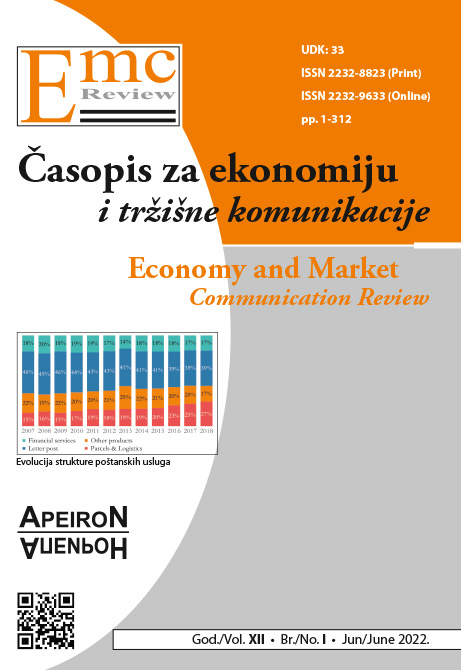THE IMPACT OF FREE ZONES ON ECONOMIC GROWTH: EVIDENCE FROM DEVELOPING COUNTRIES
DOI:
https://doi.org/10.7251/EMC2201221MAbstract
The subject of research in this paper refers to the analysis of the impact of free zones on the economic growth of developing countries. The objective of the research is to explain to the scientific and professional public the way of functioning and the transmission mechanism of free zones in generating economic growth ceteris paribus. The analysis covers free zones in three countries in the development of compatible characteristics: Serbia, Croatia and Belarus. The research problem is sublimated in the question of whether and in what way free zones have an impact on the economic growth of developing countries? The research was conducted by analyzing the relevant literature and by using the panel analysis. The results of the research showed the existence of statistically significant determination of GDP per capita, as an indicator of economic growth, by variations of macroeconomic parameters of the functioning of free zones. That is, the operation of free zones has a statistically significant impact on the economic growth of targeted developing countries ceteris paribus. Whether growth will be inclusive and sustainable in the long run depends on political and economic decision makers and defined economic policy. In this way, the hypothesis was confirmed that the establishment of free zones in developing countries, with the condition of integration of the national economy into the work of zones, creates preconditions for sustainable and inclusive economic growth.
